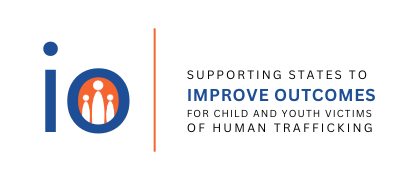About
(FY16, FY19, AND FY22)
Minnesota Department of Health
Minnesota’s Safe Harbor Expansion to Improve Outcomes for Trafficked Children and Youth Project
The Minnesota Department of Health was awarded FY16, FY19, and FY22 Improving Outcomes grants. Minnesota outlined the following systems-level barriers to identifying and assisting child and youth victims of sex and labor trafficking: absence of a system-wide youth and minor labor trafficking response, limited anti-trafficking response in tribal nations, absence of systematic tools and coordination to identify child and youth victims, and few resources for foreign national and tribal youth.
Through the FY16 grant funding, Minnesota developed the Labor Trafficking Protocol Guidelines (LTPG); created the Minnesota Youth Trafficking and Exploitation Identification (MYTEI) tool and guide based on an existing identification tool; established and enhanced relationships with tribal nations across the state to implement trafficking responses; and laid the groundwork for future anti-trafficking collaboration across the state.
The FY19 grant strengthened MN’s response to human trafficking. The key FY19 grant activities included: development and implementation of labor trafficking (LT) protocols for law enforcement through the Bureau of Criminal Apprehension (BCA); hiring an Indian Child Welfare Act (ICWA) specialist for a Tribal-specific and culturally responsive child welfare response to HT at DHS; promoting and validating the MYTEI tool; and supporting opportunities for survivor subject matter experts. The Minnesota Safe Harbor Expansion to Improve Outcomes for Trafficking Children and Youth Project builds upon previous Improving Outcomes FY2016 and FY2019 funded projects. This iteration will improve its trauma responsiveness by law enforcement, build state-tribal partnerships, and facilitate collaboration across Minnesota state- based systems.
Minnesota State Highlight
Minnesota Resources
- Minnesota
- Screening/Identification Tools
Minnesota Youth Trafficking and Exploitation Identification Tool and Guide
- Minnesota
- Resource Guides
HT and Exploitation Informational Guides
- Minnesota
- Protocols
